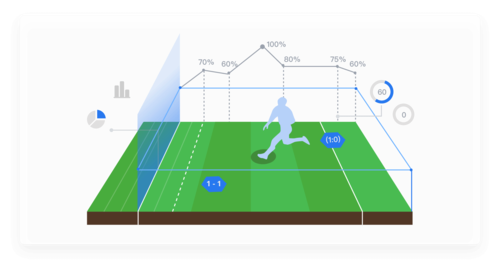体育数据分析公司
```html
Exploring Sports Data APIs: A Comprehensive Guide
Sports data APIs have revolutionized the way sports enthusiasts, analysts, and businesses interact with and utilize sports data. These APIs provide access to a wealth of information, including live scores, player statistics, team data, historical records, and much more. Whether you're a developer looking to integrate sports data into your application, a sports fan seeking realtime updates, or a business aiming to leverage sports analytics for strategic decisionmaking, understanding the landscape of sports data APIs is crucial.
Sports data APIs serve as a bridge between data providers and consumers, offering programmatic access to a diverse range of sportsrelated information. They allow developers to retrieve data in a structured format, typically using standard protocols such as HTTP or WebSocket. The data provided by these APIs can be used for various purposes, including:
- Creating sportsrelated applications and websites
- Performing statistical analysis and research
- Enhancing fan engagement through realtime updates
- Supporting betting and fantasy sports platforms
- Informing strategic decisions for sports organizations
Sports data APIs offer a wide range of features and capabilities to meet the diverse needs of users. Some common features include:
- Live Scores: Realtime updates on ongoing matches and events
- Player Statistics: Detailed performance metrics for individual players
- Team Data: Information about teams, including rosters, standings, and schedules
- Historical Data: Access to past match results, player performances, and other historical records
- Analytics: Advanced analytics and insights derived from sports data
- Media Content: Integration with images, videos, and other multimedia assets
There are several prominent sports data providers offering APIs catering to different sports and use cases. Some of the popular sports data APIs include:
- Sportradar: Known for its comprehensive coverage of various sports, including football, basketball, tennis, and more.
- Opta: Provides detailed statistics and analytics for football (soccer), rugby, cricket, and other sports.
- ESPN: Offers APIs for accessing ESPN's vast sports content, including news, scores, and analysis.
- Yahoo Sports: Provides APIs for live scores, player stats, news, and fantasy sports data.
- NBA API: Official API for the National Basketball Association, offering access to NBA data and statistics.
When utilizing sports data APIs, it's essential to follow best practices to ensure optimal performance, reliability, and compliance with terms of use. Some key best practices include:
- Read Documentation: Familiarize yourself with the API documentation to understand endpoints, parameters, authentication methods, and usage limits.
- Handle Errors Gracefully: Implement error handling mechanisms to gracefully handle API errors, such as rate limiting or server issues.
- Use Caching: Cache frequently accessed data to reduce API calls and improve performance.
- Respect Terms of Use: Adhere to the terms of use specified by the API provider, especially regarding data usage, attribution, and commercial use.
- Monitor Usage: Monitor API usage and performance metrics to identify potential issues and optimize resource utilization.

Sports data APIs offer a treasure trove of information for developers, sports enthusiasts, and businesses alike. By leveraging these APIs, you can access realtime scores, detailed statistics, and valuable insights to enhance your sportsrelated applications, analysis, and decisionmaking processes. Whether you're building a sports app, conducting research, or driving business strategies, integrating sports data APIs can provide a competitive edge and enrich the overall sports experience.